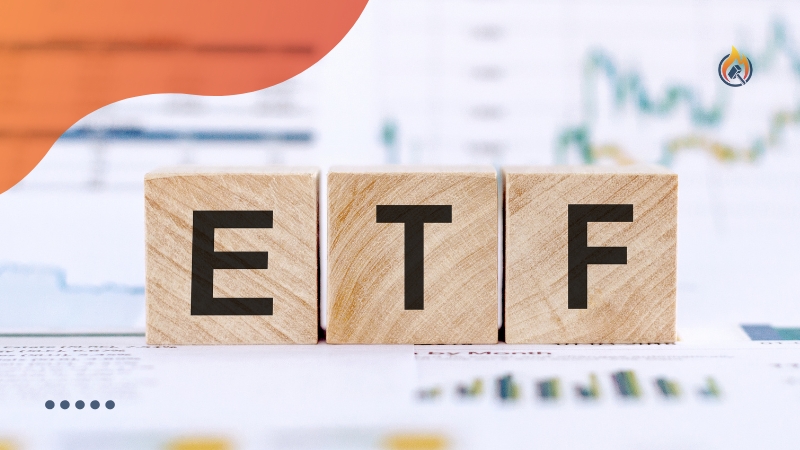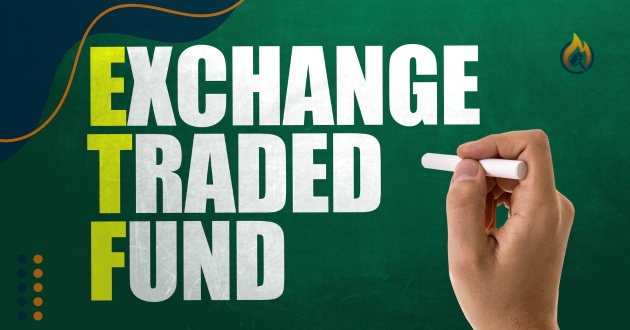When it comes to investing, ETFs or mutual funds are often two of the most popular choices for both novice and seasoned investors. Right at the beginning of your investment journey, it’s crucial to understand the key differences between these two types of investment vehicles.
One of the main reasons investors face a dilemma between ETFs or mutual funds is that both offer distinct advantages based on individual goals and strategies. Exchange-Traded Funds (ETFs) generally provide more liquidity and lower expense ratios, while mutual funds are known for offering professional management and simplicity.
Another important factor to consider when choosing between ETFs or mutual funds is your investment timeline. Investors looking for day-to-day trading flexibility often lean toward ETFs, whereas those seeking long-term investment stability may find mutual funds more suitable.
What Are ETFs and Mutual Funds?

1. ETFs (Exchange-Traded Funds)
ETFs are investment funds that are traded on stock exchanges, much like individual stocks. They hold a collection of assets such as stocks, bonds, or commodities and are designed to track the performance of a specific index or sector.
One of the most attractive features of ETFs is that they can be bought and sold throughout the day at market prices, offering a high level of liquidity. This makes ETFs a popular choice for investors who prefer flexibility in managing their portfolios.
2. Mutual Funds
On the other hand, mutual funds pool money from multiple investors to invest in a diversified portfolio of assets.
These funds are actively managed by professional fund managers who aim to outperform the market. Unlike ETFs, mutual funds are only traded once a day, after the market closes.
This means that investors in mutual funds do not have the ability to trade shares at intraday prices, which can be a disadvantage for those seeking more control over their trades.
Key Differences Between ETFs and Mutual Funds
1. Expense Ratios
One of the main differences between ETFs or mutual funds is the cost associated with each. ETFs typically have lower expense ratios because they are passively managed, tracking an index.
Mutual funds, especially actively managed ones, come with higher fees due to the involvement of fund managers who are constantly buying and selling assets to outperform the market.
2. Tax Efficiency (ETFs or mutual funds)
Another critical factor to consider is tax efficiency. ETFs are generally more tax-efficient than mutual funds due to their structure.
When you sell ETF shares, you sell them on the open market, which doesn’t trigger a taxable event for other shareholders.
In contrast, mutual funds may generate capital gains taxes for all investors when the fund manager sells underlying assets within the fund.
Choosing the Right Provider for ETFs or Mutual Funds
Selecting a reliable provider is crucial when deciding between ETFs or mutual funds. Many investors turn to well-established firms like BlackRock, which offers a wide range of both ETFs and mutual funds tailored to various financial goals.
BlackRock’s extensive portfolio management experience and diverse investment options make it a trusted choice for those looking to diversify their holdings and optimize returns, whether through passive ETF strategies or actively managed mutual funds.
Which Option Is Right for You?
1. Short-Term vs. Long-Term Goals
If you are looking to make quick trades and benefit from market fluctuations throughout the day, ETFs are likely the better option.
Their ability to be traded like stocks gives investors the flexibility to respond to market changes immediately.
However, if you are a long-term investor who prefers a more hands-off approach, mutual funds might be more appealing due to the professional management and stability they offer.
2. Active vs. Passive Management (ETFs or mutual funds)
The choice between ETFs or mutual funds often boils down to whether you prefer active or passive management. If you believe in the potential of professional fund managers to beat the market, mutual funds could be a better fit.
Conversely, if you are content with achieving the market average and minimizing costs, ETFs are likely the way to go.
Exploring High Yield Canadian Investments with ETFs or Mutual Funds
When considering investment options, one avenue worth exploring is high yield Canadian investments. Both ETFs and mutual funds offer access to Canadian markets, allowing investors to tap into sectors that provide attractive returns, such as real estate, energy, and financial services.
ETFs, in particular, can be a cost-effective way to gain exposure to a variety of high-yield Canadian stocks, while mutual funds provide professional management to navigate the nuances of the Canadian economy.
Liquidity Considerations in ETFs or Mutual Funds
1. Trading Flexibility of ETFs
ETFs are known for their liquidity, as they can be traded throughout the day on stock exchanges, just like individual stocks.
This feature allows investors to react quickly to market changes, which can be advantageous during times of market volatility. Investors looking for flexibility in buying and selling shares may find ETFs more suitable for their portfolios.
2. Redemption Rules of Mutual Funds (ETFs or mutual funds)
In contrast, mutual funds are traded only once a day, after the market closes. This can limit an investor’s ability to react to intra-day price movements.
While this makes mutual funds more stable and predictable, it also reduces flexibility, which may be a disadvantage for those who prefer more control over their investment timing.
Costs and Fees: ETFs vs. Mutual Funds
1. Lower Fees with ETFs
ETFs tend to have lower expense ratios compared to mutual funds, mainly because they are usually passively managed. Investors who are cost-conscious may prefer ETFs as a way to minimize the fees that can erode returns over time.
2. Actively Managed Mutual Funds
Mutual funds, especially those that are actively managed, often come with higher fees due to the involvement of professional fund managers. While these fees can be justified by the potential for higher returns, they are something investors need to weigh carefully against the costs associated with ETFs.
Conclusion: ETFs or mutual funds
In conclusion, the decision between ETFs or mutual funds ultimately depends on your individual investment goals, risk tolerance, and preference for management style. ETFs offer greater flexibility with lower fees, making them a popular choice for investors who seek a hands-on approach and the ability to trade throughout the day.
Mutual funds, with their long-term focus and professional management, can be ideal for those who prefer a more passive investment approach. They offer the benefit of active management, which can be valuable in navigating complex markets or specific sectors.
Ultimately, the right choice between ETFs or mutual funds will depend on your financial strategy and the level of involvement you wish to have in managing your investments. Both options offer diversified exposure to a variety of asset classes, making them suitable for building a balanced portfolio.


